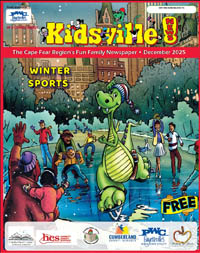 Those who know a little bit about the origins of Hanukkah are aware that it celebrates the miraculous victory of Judea over King Antiochus IV and his Syrian-Greek empire nearly 2,200 years ago.
Those who know a little bit about the origins of Hanukkah are aware that it celebrates the miraculous victory of Judea over King Antiochus IV and his Syrian-Greek empire nearly 2,200 years ago.
Few realize that this was as much an internal struggle between Jewish traditionalists (championed by the Maccabees/Hasmoneans) and Jewish assimilationists who wanted to transform Judea into a Hellenistic nation so that they could achieve full acceptance by and integration into the Syrian-Greek empire.
In fact, it was these Jews who first brought the king into the conflict through false accusations of embezzlement taking place in the Temple treasury in Jerusalem. Mostly unrecognized is that beyond Antiochus’ army, many forces fought by the Maccabees were Jewish sympathizers of the Hellenists.
The traditionalists were not fighting acculturation through the adoption of certain features of the prevailing Greek culture. Rather, they were battling those fellow Judeans who sought to replace the Jewish faith and way of life with a pagan society and its practices, regardless of the cost to the survival of Judaism itself.
The second most recognizable symbol of Hanukkah, is the Dreidel, a four-sided spinning top used in a family holiday game,
that incorporates light-hearted gambling.
According to the most common explanation, the Dreidel originated as part of a Maccabean ruse. After Antiochus outlawed the study of Judaism, the traditionalists nevertheless persisted, while ostensibly pretending to be playing Dreidel whenever Syrian-Greek troops passed by.
In reality, this legendary account first appeared in the 19th century, shortly after the game of Dreidel was itself borrowed by eastern European Jews from a German game especially popular at Christmas time (and quite similar to the English and Irish game of Totum or Teetotum, which was first mentioned in the early 16th century). In German, the game was called Torrel or Trendel/Trundel (meaning spinning top) which the
Jews transformed into their Yiddish vernacular as Dreidel.
Various explanations (some of which were numerological or mystical) were also offered for the meaning of the four letters found on the Dreidel’s sides. The most popular was that they are the first letters of the Hebrew phrase meaning “a great miracle happened there (i.e. in ancient Israel/Judea).” In truth, the letters simply indicated instructions for the game when a side lands face-up (i.e. take the whole pot, take half, do nothing, or put one in).
While usually oblivious at the time, all groups have always appropriated and adopted aspects of life from others they interact with.
What continually strikes me is how thoroughly Judaism integrates those elements it borrows from other cultures.
They are invariably invested with so much traditional Jewish meaning and symbolism that we come to presume they have always been intrinsic to the Jewish heritage.
Some may be a little disappointed or even disillusioned to discover that Dreidel was taken from a yuletide game. Don’t be. It actually reinforces the central message of the Maccabees and Chanukah.
They refused to trade away Jewish belief and law and take on pagan practices merely in order to merge into Hellenistic society. Indeed, they were willing to die to uphold the Jewish tradition.
Still, as part of the natural development of Judean society they certainly incorporated elements of the surrounding civilization that did not threaten the fundamental nature of Judaism.
Perhaps there is a lesson for all of us. We need not fear judicious sharing among cultures and groups as long as we preserve the essential elements of individuality we cherish, and synthesize them in such a way as to enhance and strengthen our own uniqueness.

 How to resolve AdBlock issue?
How to resolve AdBlock issue? 








